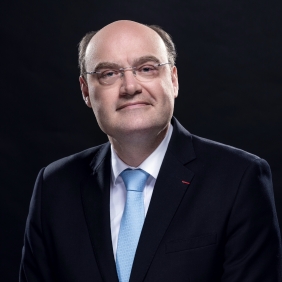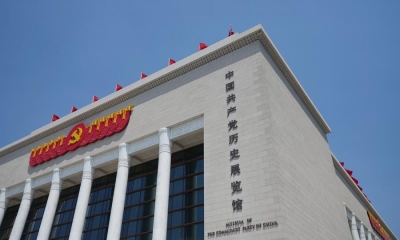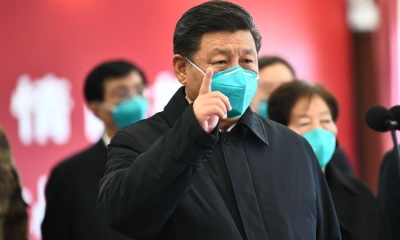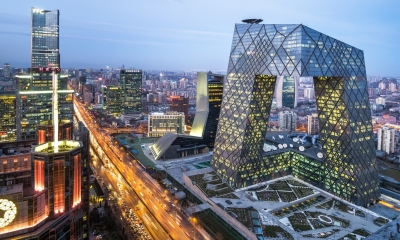The European Union and China: Honoring the Past, Shaping a Better Future
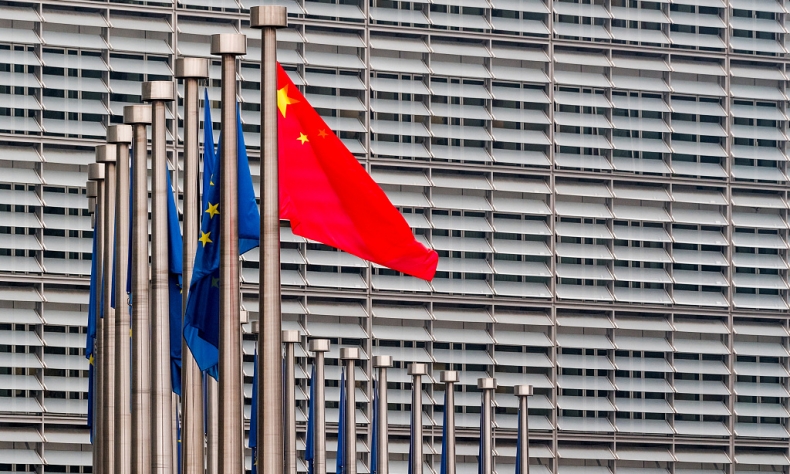
With strategic cooperation as our compass, with mutual respect as our foundation, and with the well-being of humanity as our goal, there is no limit to what we can achieve.
Editor’s Note: On June 8, 2025, David Gosset, Founder of the China-Europe-America Global Initiative, delivered a keynote speech at China Europe International Business School (CEIBS) in Shanghai on EU-China relations. Gosset emphasized that the European Union and China can—and must—work together to create a new Golden Age for humanity. Excerpts of the speech are as follows:
Since the establishment of diplomatic relations in 1975, the European Union and China have made remarkable progress. From trade and investment to culture and education, EU-China partnership has expanded and deepened. Europeans and Chinese have built bridges between peoples and established mechanisms of dialogue and cooperation across multiple sectors. This partnership is not only beneficial for the two regions; it has global significance.
It is as common to hear about China’s success as it is to hear about the challenges facing the 27 members of the European Union. Yet, European integration has been an extraordinary achievement. For the EU’s 450 million citizens, it represents a space of peace and relative prosperity.
When we recall that France and Germany fought three wars in less than a century, and consider that a conflict between them today is virtually unimaginable, we begin to grasp the scale of the progress that has been made.
In this sense, the EU stands as a powerful testament to Kant‘s vision of perpetual peace—it is no longer a utopian dream, but a living reality. I urge you not to underestimate what the European Union represents: both its political architecture and the inspiring ideal that gives it life and purpose.
But today, we find ourselves at a crossroads. The world has changed drastically since 1975. We are living in an era of great geopolitical shifts, environmental challenges, and technological transformation.
I do not subscribe to the narrative of deglobalization. On a global scale, new forms of globalization are emerging. While some degree of decoupling or de-risking is indeed occurring, we are also witnessing processes of coupling and re-coupling. What concerns me more is the trend of decivilization, as human dignity—as well as the harmony between humanity and nature, and among cultures—remains fragile.
The international system that has provided stability and progress for decades is under strain. In this new context, it is no longer enough to celebrate past accomplishments. What must guide us now is ambition—an ambition rooted in the present and focused on the future.
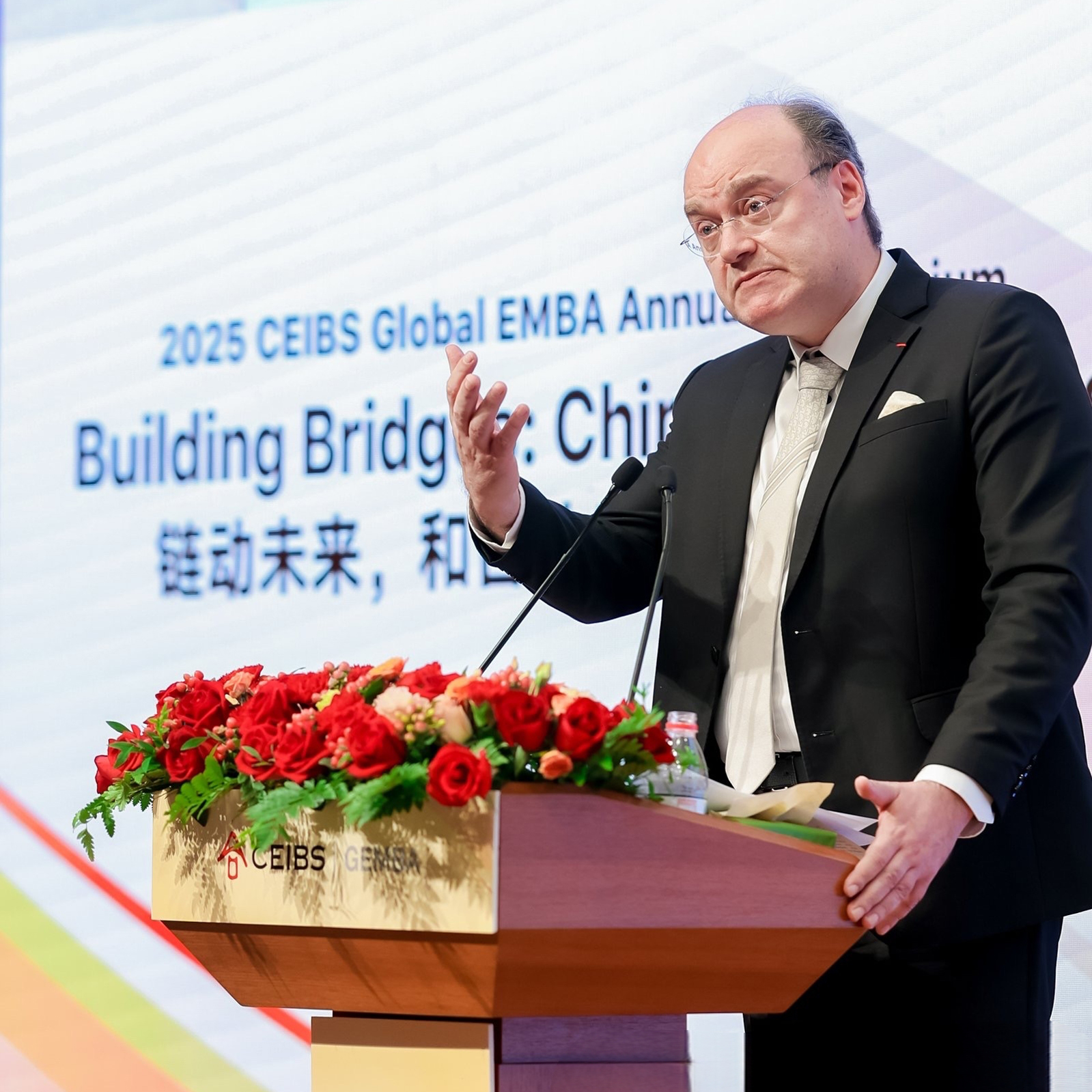
I am referring to an ambition that matches the scale of the multiple crises and strategic risks defining our time. We cannot allow ourselves to be swept along by trends whose outcomes we already know would be disastrous.
This ambition must transcend mere transactional exchanges. It must be visionary. It must be built on the belief that Europe and China, together, can become a matrix for unity, not division—a driving force for a more balanced, peaceful, and sustainable world.
Today, one of the greatest threats to global stability is the growing appetite for domination exhibited by the current American leadership. This hegemonic instinct—fueled by zero-sum thinking and strategic confrontation—is both worrisome and dangerous. It sows division in an already fragmented world. It undermines multilateral institutions.
At the 2025 Shangri-La Security Dialogue, U.S. Defense Secretary Pete Hegseth portrayed China as an imminent military threat. The irony is striking: in warning against danger, he may be creating one. Misrepresenting the geopolitical situation is dangerous, as it can lead to serious miscalculations.
Europe and China must respond—not with defensiveness or negativity, but with a clear and constructive vision. They must present a compelling alternative and begin putting it into action without delay.
Put simply, Europe and China must show genuine leadership.
I would like to clarify that I distinguish between the policies of a particular administration and the values an entire country represents. Just look at how Harvard University stands firm against the harmful directives coming from Washington, D.C. In a sense, one could argue that Harvard embodies the true spirit of America more than the narrow-minded nationalists who claim to serve the country’s interests.
I am convinced that the most effective response to the current U.S. administration is a forward-looking, constructive vision rooted in moral authority. Over time, nothing proves more valuable or enduring than the power of moral integrity.
By crafting a vision that is fair and attuned to the complexities of our time—and by pursuing it in the most constructive spirit possible—the EU and China offer the most effective response to President Trump’s retreat into harsh unilateralism.
A vision based on cooperation, mutual respect, and shared responsibility. We must protect multilateralism. We must reform and revitalize the institutions that uphold international law and global governance. In particular, we must champion the reform of the United Nations system to make it more inclusive, more democratic, and more reflective of today’s realities.
I am as aware as you are of the many imperfections of the United Nations. This year, we commemorate the 80th anniversary of the end of World War II. With its conclusion came the end of a conflict that claimed the lives of 80 million people. It also marked the beginning of the United Nations, which I regard as a temple of humanity.
Where the UN falls short, we must work to reform and strengthen it. But we should not stand by while some seek to undermine it. Our world needs the WTO, the World Health Organization, UNESCO, and all the other institutions that embody humanity’s progress and the evolution of a more sophisticated system of global governance.
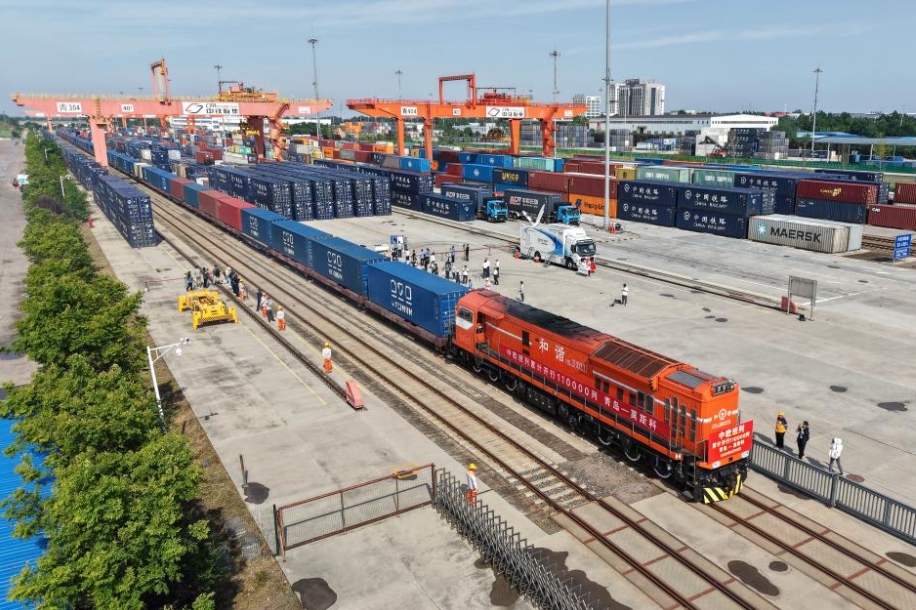
Europe and China must also work to foster a genuine dialogue between civilizations. Our histories, philosophies, and traditions may differ, but our aspirations converge. Let us never forget: dialogue is the foundation of peace.
I have founded the China-Europe-America Global Initiative. Just a few days ago, we gathered in Athens to exchange ideas on the role of ancient civilizations in shaping global progress.
Dear friends, our meeting was held at the Acropolis Museum, with a stunning view of the Parthenon. In these meaningful moments, we were reminded that we Europeans and Chinese share a profound sense of historical depth.
This is a powerful asset—not a material one, but an intellectual and spiritual heritage more precious than gold. We must make full use of it.
As we look ahead, we must embrace the concept of ecological civilization. This is not just an environmental imperative—it is a philosophical and civilizational shift. The planet is under stress. Climate change, biodiversity loss, pollution, and resource depletion threaten our very survival. Europe and China must lead the way toward a new model of development that harmonizes economic growth with environmental stewardship. We must invest in green technologies, promote sustainable infrastructure, and create resilient societies.
As you know, the third UN Ocean Conference opens tomorrow in Nice. This marks another crucial moment for our shared future. Ten years ago, we succeeded in signing the Paris Agreement—an achievement made possible thanks to the leadership of the EU and China. In Nice, they will once again demonstrate that they are pillars of an emerging ecological civilization.
Peace and progress must be our guiding stars. In a time of rising tensions and uncertainty, we must be the champions of peace. We must invest in diplomacy, in cooperation, in human development.
The world does not need more weapons, nor does it need a race to weaponize artificial intelligence—and it certainly does not need more nuclear arms. What it truly needs are more schools, more hospitals, more clean energy initiatives, and more opportunities for cultural exchange.
I came here today to deliver one message: we, Europeans and Chinese, must—and can—create the conditions for a new Golden Age for humanity.
This is not a utopian dream; it is a pragmatic and urgent necessity. The challenges we face—climate change, pandemics, poverty, inequality, artificial intelligence—are global. They can only be addressed through global solutions. And there can be no global solutions without close cooperation between Europe and China.
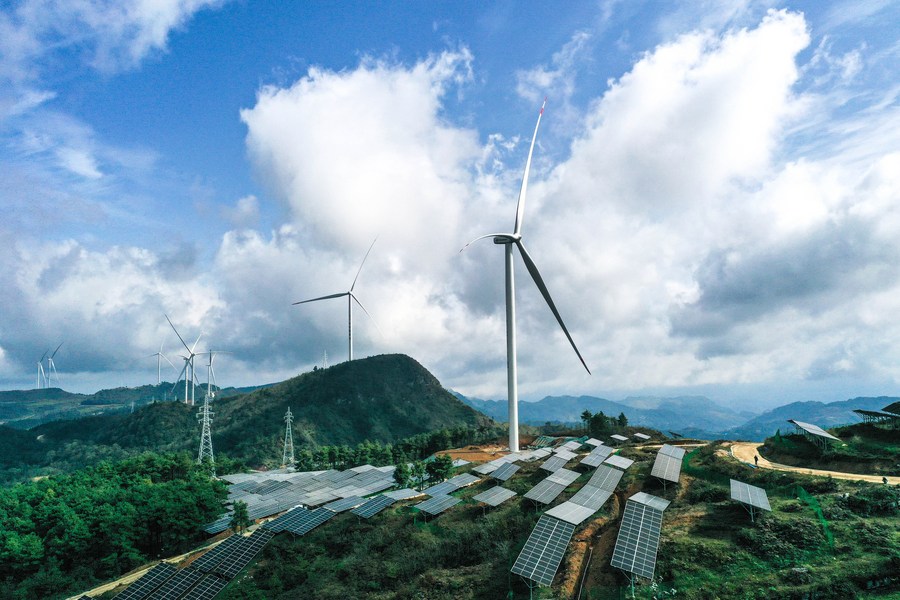
It is time to change the narrative. We are not systemic rivals. We are not adversaries in a geopolitical game of chess.
We are strategic partners. We share common interests. We face common challenges. And we can find common solutions. A strategic partnership involves independent actors whose actions are not dictated by external parties.
Let us change the mindset. The current international discourse is dominated by a dangerous metaphor: that of a race. A race to the top, a race for supremacy, a race with winners and losers.
But international relations should not be treated like a sports competition. The future of humanity is not a finish line. There is no gold medal at stake.
What we need instead is an infinite journey of progress—a journey in which all of us move forward together.
The very engine of this journey must be strategic cooperation. Cooperation not as a slogan, but as a practice. Cooperation that is built on trust, transparency, and reciprocity. Cooperation that delivers concrete benefits for our people and for the planet.
We must strengthen our economic partnership, making it more balanced and more resilient. We must support sustainable trade and investment, ensuring that our economies serve the well-being of our citizens and not just the bottom line.
We must deepen our scientific and technological cooperation, especially in areas such as renewable energy, digital innovation, and public health.
In my analysis, future technological disruptions will be driven by applications of quantum physics, quantum communication, and quantum computing. I see no reason why Europe and China should not cooperate in this highly strategic field.
We are all well aware that space is becoming an increasingly important domain. Decades ago, the EU and China missed a valuable opportunity to collaborate on the Galileo global navigation satellite system. Today, it is essential that the EU and China approach space as partners.
We must also invest in people-to-people exchanges. Cultural diplomacy, academic cooperation, and youth mobility programs are essential to building the foundation of long-term understanding.
You know that one of the key elements in the success of European integration was the exchange of students within Europe. This initiative became known as the Erasmus Program. A China component has been added to it, but it remains too modest.
Europe and China need a 21st-century Erasmus Program of unprecedented scale. While the United States is closing its universities to foreign students, Europe and China must open theirs to each other. Such mutual exchange would be both meaningful and consequential.
It is the Sino-European civil society that must be strengthened. With this in mind, I am calling for a high-level program to support structured exchanges between our cultural institutions, particularly museums.
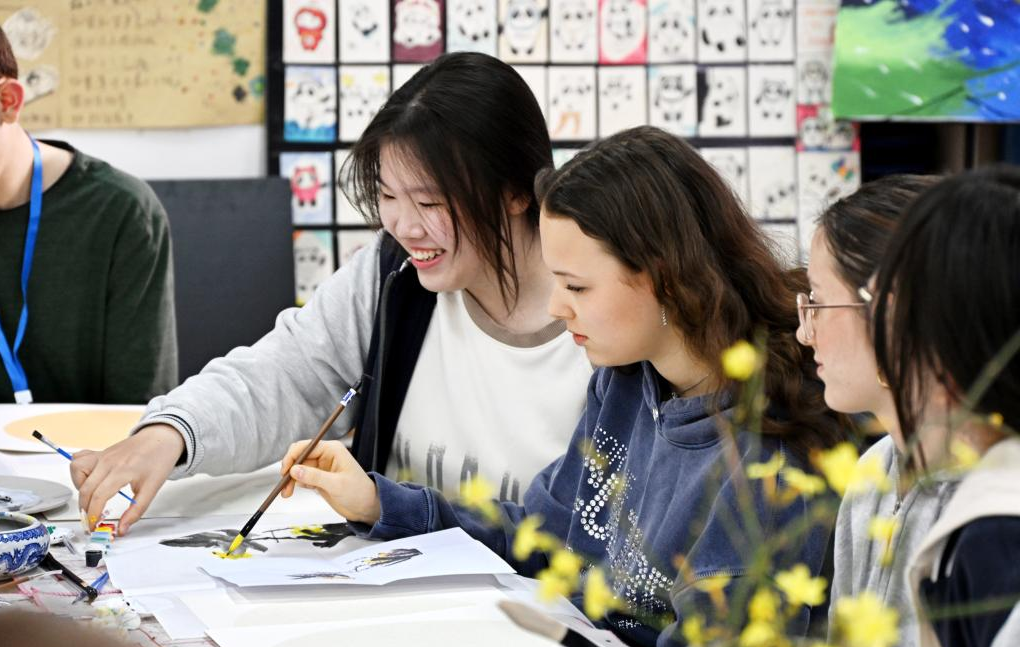
Moreover, we must support the development of the Global South. Europe and China have both benefited from globalization. We have a responsibility to ensure that globalization becomes more inclusive. Let us work together to support infrastructure projects, education programs, and sustainable development initiatives in Africa, Latin America, Southeast Asia, and beyond.
Let us recognize that true security does not come from military power—it comes from social cohesion, from economic opportunity, from environmental sustainability. Security is not a zero-sum game. The more secure your neighbor is, the more secure you are. That is the essence of cooperative security.
Let us commit ourselves to a bold agenda. An agenda that reflects our shared values and addresses our shared concerns. An agenda that goes beyond managing differences and seeks to harness our complementarities. An agenda that inspires confidence—not just in Brussels and Beijing, but in the hearts of ordinary people around the world.
Let us remember: the European Union and China are not just economic giants. They are cultural, intellectual, and moral forces. They have thousands of years of history, of thought, of creativity. They have shaped civilizations. And now, they have the chance to shape the future—together.
Some may argue that my vision for the future of EU-China partnership does not sufficiently acknowledge the challenges currently affecting their relations. My response to this concern is twofold. First, the existence of issues—particularly economic ones—is entirely normal. These challenges can be addressed through dialogue, negotiation, and compromise, especially within the framework of a relationship defined as a strategic partnership. Second, we must not forget that we have a choice: we can either be paralyzed by difficulties, or we can choose to confront them—one by one—by leveraging the unprecedented financial and scientific resources at our disposal.
The journey ahead is infinite. But with strategic cooperation as our compass, with mutual respect as our foundation, and with the well-being of humanity as our goal, there is no limit to what we can achieve.
Let this mark the beginning of a new chapter—perhaps even a new volume—in EU-China relations, with both sides viewing each other as guardians of civilization and beacons of hope.
Let this be the dawn of a new Golden Age—for Europe, for China, and for all of humanity.
The article reflects the author’s opinions, and not necessarily the views of China Focus.
 Facebook
Facebook
 Twitter
Twitter
 Linkedin
Linkedin
 Google +
Google +



